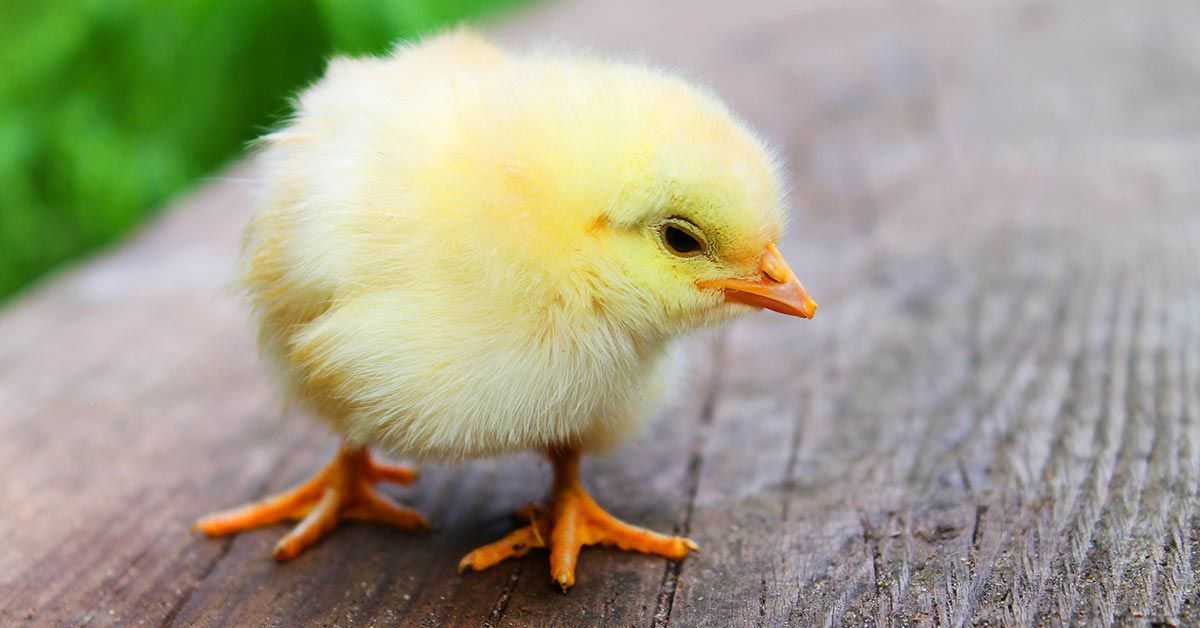Click HERE For a printable PDF Version of these tips!
Before You Buy
- Research the type and breed characteristics for your situation.
- Clean and disinfect the area, waterers and feeders if they have been previously used
- Setup and heat brooder ring 24 hours ahead of time
- Bed with absorbent litter ‐ shavings
Brooder Temperature Tips
- Provide a heat source in the center of brooding area
- Test temperatures at the chicks' level – approximately 6 inches from the floor
- During the first week, heat at 95 degrees F
- Lower temperatures 5 degrees F each week until you reach a temperature of 70 degrees F
When You Buy
- Purchase chicks from well‐known, National Poultry Improvement Plan (NPIP) approved hatcheries
Once They're Home
- Keep dry, protected from cold, drafts, entry by other animals
- Observe chicks to ensure they are comfortable, and spread uniformly under the heat source
- Provide fresh, clean, room-temperature water at all times
- Clean waterers daily
- Provide a waterer that will restrict bathing (no open containers)
- Add Stress Pak (electrolytes and vitamins) for the first week or two
Feeding The Right Grain
Start with Poulin Grain Chick Starter Crumbles
- Formulated to give chicks a healthy start and build a strong frame.
- Feed 2‐3lbs per week per bird for 6 weeks (12‐18lbs per chick)
Broilers
- Feed Chick Starter Crumbles for the first 2 weeks or Quik Grow Broiler Crumbles.
- Quik Grow Broiler Crumbles can then be fed from 2 weeks until market size.
- It will take approximately 12lbs of feed and 6‐7 weeks to raise one broiler to market weight.
Layers
- At 6‐8 weeks switch to Poultry Grower Finisher Crumblet (12‐13lbs per bird during the 12 week period).
- When they begin to lay (5‐6 months of age) switch to a Layer Pellet, Mash, Crumble or Egg Production Plus.
- Layers need 14‐16 hours of light per day to produce eggs.
- 10 birds should produce 8 to 10 eggs per day.
- You will need 100 to 195 pounds of feed to produce about 20 dozen eggs per bird in 13 months (.25‐.50lbs of feed per day per bird).
Turkeys
- Start with a 5 degree F higher temperature in the brooder.
- Begin with Turkey/Gamebird Starter Crumble from 1-6 weeks of age.
- At 6-8 weeks of age switch to Turkey/ Gamebird Grower/ Finisher Pellet.
- Depending on breed, your bird will mature in five months and weigh from 18 to 40 lbs (about 80lbs of feed to raise to maturity).
Game Birds
- Feed Turkey/ Gamebird Starter Crumble or Gamebird Starter/ Grower Crumble for the first 8 weeks.
- Transition to Turkey/ Gamebird Grower/ Finisher Pellet up to market size at about 14‐16 weeks.
- Mature breeders can continue to be fed Turkey/ Gamebird Grower/ Finisher Pellet.
Ducks and Geese
- Do not feed medicated feeds or medicated water.
- Feed Chick Starter Crumbles up to 4 weeks.
- At 4‐5 weeks, switch to Poultry Grower Finisher Crumblet for pets.
- For meat birds, feed a Quik Grow Broiler Crumbles from 4 weeks until market size (8 weeks).
- For layers, switch to Layer Pellet, Mash, Crumble, or Egg Production Plus when birds begin to lay.
Backyard Biosecurity Measures For a Healthy Flock
- Disinfect feeders, waterers, brooders, pens and coops before introducing new birds to the area.
- Thoroughly wash your hands after cleaning or working in the chicks' environment.
- Don't introduce unnecessary visitors to your flock.
- Quarantine new birds from the existing flock for 30 days to avoid introducing new diseases.
- Supervise children when handling poultry. Do not nuzzle or kiss chicks, and wash up when through with handling.
- Always report sick birds to your State Veterinarian.
If you would like to learn more about Poulin Grain's quality livestock and equine feeds and personalized services such as complimentary forage testing and diet balancing, please visit www.poulingrain.com or call 800.334.6731


